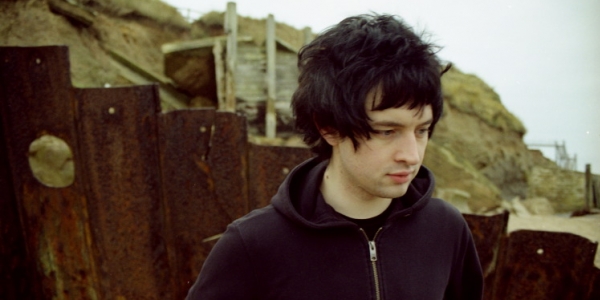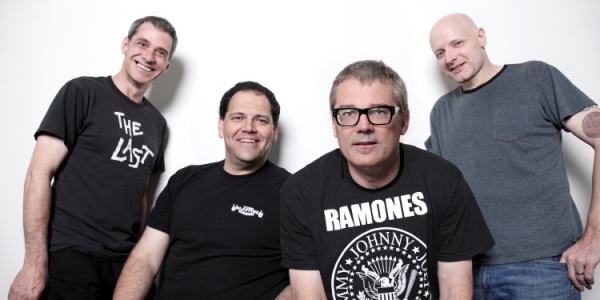As he prepares to arrive in Australia once again, it’s hard to believe Nathan Fake’s magnum opus Outhouse came out 10 years ago. Despite misconceptions about his age, the now 29 year old purveyor of synth-laden atmospheric techno is steadily becoming one of the industry’s stalwarts.
Fake’s career took off unexpectedly back in 2003 when Outhouse was picked up and released as a 12 inch on James Holden’s then fledgling Border Community record label. Outhouse was only their second release. The song, the perfect soundtrack to a rave in a haunted house, still stands the test of time all these years later and is a testament to Fake’s distinctive style. The release of the legendary Sky Was Pink remix by James Holden came soon after, solidifying his “hot newcomer” status.
“James just really liked the original. We never expected it to be this massive hit. It’s nice that that record has reached so far but it’s so old now – it’s eight years old. People still go on about it which is nice but it’s kind of annoying because I’ve had loads of records out since then,” he laughs. The friendship between Fake (his real name, funnily enough) and his mentor Holden still continues to this day.
Fake puts his hand to the odd remix himself now and then, reworking the likes of our own PVT, Annie and a little band called Radiohead for their TKOL RMX 1234567 album (Thom Yorke is a fan).
Many DJs completely change their sound over time in line with trends and changed tastes but Fake has stayed true to his original aesthetic over time and with his album from last year, Steam Days. Although he may have matured and added in a few more bells and whistles, this album is in keeping with the emotive quality of his work over the last decade, albeit with a slightly harder edge.
The new album, with incredible tracks like Iceni Strings, Neketona and Paean (including the awesome Lone remix) is his most impressive work to date. Steam Days is his third album, following the mini-album Hard Islands in 2009 and Drowning in a Sea of Love in 2006 (featuring The Sky Was Pink). Using an analogue tape machine in his London studio he has attempted to achieve a grittier sound.
“For the last two years I’ve been playing around with tape. It’s quite an interesting effect because you can get weird sounds from tape that you can’t really get through digital means. I used a lot of that on Steam Days, playing around with different tape recording techniques.”
His first time back in Australia since an under-appreciated set at Meredith Music Festival in 2009, Fake is looking forward to returning. “[Meredith] was really good. The location is amazing. It was quite cool to see some of the outback because I only ever stay in the city.”
This time he’ll be playing at a very different kind of festival, Rainbow Serpent. The festival’s psy-trance roots, while different to his own sound, aren’t as foreign as you might think.
“It’s kind of fun the whole raver scene in the UK, with all these free parties going on. Where I’m from in Norfolk, you get loads of illegal psy-trance parties on the beach. They do these weird parties where it’s been the same crowd for the past eight or nine years.”
Fake remains coy on the topic of whether he is going to be playing any sideshows during his visit, although he will be spending the week in Melbourne between Rainbow Serpent (Sunday January 27) and shows the following weekend in Perth and Sydney.
As for his live set, Fake plays live using a simple set up of laptop with Cubase and a couple of midi controllers, as displayed in his recent Boiler Room set.
“It’s all stuff off my new album with a few old bits and pieces chucked in. The live set sounds like a raved-up version of the album pretty much.”
He says the live set changes a lot from the sound of the album.
“I’m using Ableton when I play live but when I’m in the studio I use Cubase and random bits of hardware and software. I find the live set sounds quite different to the recorded stuff.”
He likes to mix up his sets depending on the crowd, so no two sets are the same.
“Musically it’s actually totally improvised. It’s all set up on my laptop so I can go in different directions because it’s fun playing different kinds of shows. A festival is quite different to club shows. Last month I was on tour with Orbital doing the support slot. It’s quite different as I was playing really early evening so it was quite mellow – much different to playing a rave at 4am.”
The producer, who is often compared to other UK electronic artists Aphex Twin and Boards of Canada, has managed to attach a real emotive quality to his productions. Some are sad and melancholy, some uplifting, many build slowly and create that feeling of going on a “journey”, as corny as that may sound. “My favourite music is sad music,” he jokes.
“A lot of it is quite sub-conscious. I like to think my music is quite visceral. I’m into a lot of different textures and moods and stuff. I like to play with lots of contrasting textures and sounds which is what makes it sound quite rich. I don’t think too much about what a track is feeling like or what mood it’s going to have.
“The stuff you write when you’re not thinking about it is usually the best stuff.”
BY ROSE CALLAGHAN

